Best travel credit cards for people with bad or fair credit




It can be tough to find a travel credit card if your credit score has seen better days, as many of the best travel credit cards require a FICO score of 670 or higher. While options may be limited, the good news is you can still earn rewards toward travel and everyday categories like gas, dining or entertainment through cash back cards. Even with bad-to-fair credit or a limited credit history, the right rewards card can help offset vacation costs while you work on improving your score.
Take a look at our picks for the best travel credit cards for bad-to-fair credit, along with tips on how to make the most of your travel rewards.
The best travel cards for bad-to-fair credit
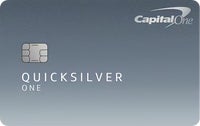
Capital One QuicksilverOne Cash Rewards Credit Card
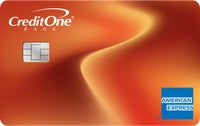
Credit One Bank® Wander® American Express® with Dining, Gas & Travel Rewards
Bank of America® Travel Rewards Secured Credit Card*
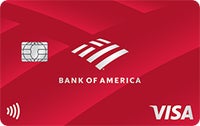
Bank of America® Customized Cash Rewards Secured Credit Card
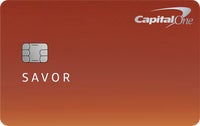
Capital One Savor Student Cash Rewards Credit Card
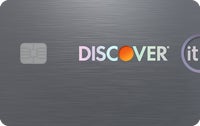
Discover it® Secured Credit Card
Comparing the best travel cards for bad-to-fair credit
| Card name | Best for | Annual fee | Credit score needed | Rewards highlights |
| Capital One QuicksilverOne Cash Rewards Credit Card | Hotels and rental cars | $39 |
|
|
| Credit One Bank® Wander® American Express® with Dining, Gas & Travel Rewards | Travel rewards | $95 |
|
|
| Bank of America® Travel Rewards Secured Credit Card* | Flat-rate rewards | $0 | Bad credit |
|
| Bank of America® Customized Cash Rewards Secured Credit Card* | Day trips | None | No credit history |
|
| Capital One Savor Student Cash Rewards Credit Card | Students | $0 |
|
|
| Discover it® Secured Credit Card | Welcome bonus | $0 |
|
|
How to choose the best travel card for fair or bad credit
The best travel cards for people with bad-to-fair credit have features that can make your travel or everyday purchases more rewarding and help cover the cost of your next trip. But choosing the right one for you will depend on a few factors:
What’s next?
The bottom line
Having less-than-stellar credit doesn’t mean you have to miss out on travel perks. You can score a rewards card even if you don’t have good credit, and with responsible use and a sound strategy to maximize your rewards, your next flight, hotel stay or day trip could be a lot less expensive. Just make sure to stay on budget so you don’t undo all your hard work.
Frequently asked questions about bad or fair credit travel cards
The Bank of America content on this post was last updated on Jan. 12, 2026.
*The information about the Bank of America® Customized Cash Rewards Secured Credit Card and Bank of America® Travel Rewards Secured Credit Card has been collected independently by Bankrate.com. The card details have not been reviewed or approved by the card issuer.
Why we ask for feedback Your feedback helps us improve our content and services. It takes less than a minute to complete.
Your responses are anonymous and will only be used for improving our website.




